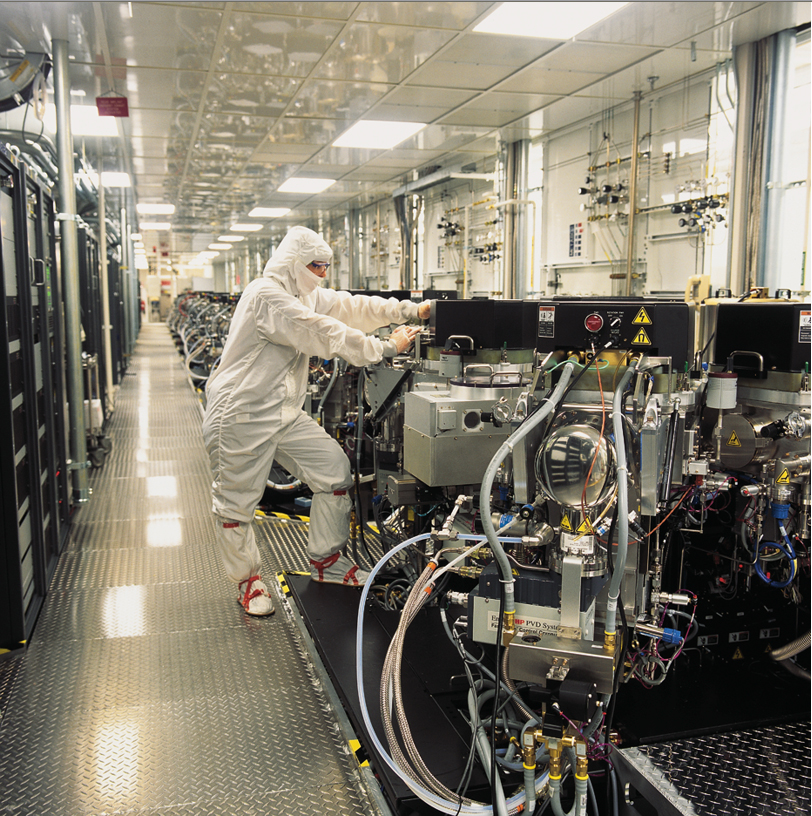So: today it is. And yet, this post -- while entirely non-political -- has its electoral echoes ...
And some quite personal remembrances, too.
Yesterday I attended an IEEE meeting (IEEE being the the Institute of Electrical and Electronics Engineers, a professional society of which I've been a member for 40+ years). That itself isn't especially newsworthy, but the session's topic -- basically the past, present, and future of computer memory -- sure spoke to me. Especially the first talk: "Memories of memories."
| An Intel 1103 chip |
In 1973, my MS newly completed, I began working at Bell Labs. Telephone switches are both large scale and high reliability, and magnetic memory was the standard. (Our system used magnetic wire memory, rather than magnetic core -- the distinctions not being important to this narrative). Not coincidentally, I was assigned to the team working to introduce semiconductor memory to the telephone switch. Another part of the company handled the memory chip itself, but I designed some of the supporting/surrounding circuitry, analyzed possible failures and their system-level effects, and wrote much of the related software for fault recognition, system reconfiguration, and subsystem-level fault isolation.
So, definitely, that "Memories of memories" presentation spoke to me. As for an election tie-in, my independent study overlapped the consequential 1972 election. The summer of 1973, just before I started at Bell Labs, was in large part spent (in competition with finishing my thesis) glued to a TV watching the Watergate hearings.
Another presidential-election connection: The field trial of a switch with the new memory was in 1974 or '75 (I forget which), at an AT&T office in Macon, GA. I was onsite one night when a hardware fault -- not in anything I'd had any part of, I'm happy to say -- crashed the switch. That outage disrupted long-distance service for, among other locations, a nearby little town called Plains. If that name doesn't ring a bell (telephone pun of course intended), Plains was the home town of -- and campaign headquarters for -- a certain aspiring Georgia governor: Jimmy Carter.
 |
| Memory fab (file photo) |
 |
| 1st cover / click for nanobots |
The closest thing then to a nanotech factory was surely a microelectronics factory: a semiconductor plant. Fortunately, I lived near such a factory (company name omitted to protect the (if not guilty, at least) strange. I wangled an invitation for a personal tour, and was asked before the big day whether I had specific questions.
Of course, I did have questions. My interest was in the implications of extrapolating processes to much smaller feature sizes than then produced. I emailed my questions -- and my invitation was rescinded. Reading between the lines, my questions had been too perceptive.
Someone at the factory apparently decided either that (a) my proposed novel was an industrial spy's cover story or (b) answers to my questions in a novel might reveal too much of the company's plans. In a perverse way, I was flattered. And still in need of answers ...
Happily, attending a nanotech conference offered a different route to predicting the nature of a nanotech factory. That, plus drawing upon visits to factories [of other types] of my former employers, did the trick. The nanotech factory in Small Miracles -- site of much mayhem, I'll add -- is a synthesis of those experiences.
 |
| The current edition |
One more bit of prescience: at a critical juncture -- in that nanotech factory, in fact -- Small Miracle's plot involves exploding laptop batteries. Not so different from this year's exploding Galaxy Note 7 batteries ...
Absolutely, yesterday's session was all about memories of memories.

































No comments:
Post a Comment